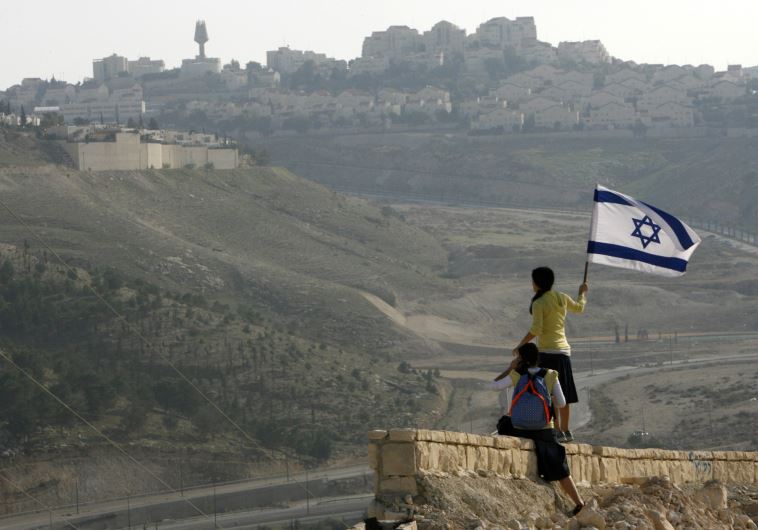Peace Now: Pace of planning for new settler homes accelerated in 2016
In the first three months of this year plans were advanced for 499 new units in West Bank settlements.
 A girl holds an Israeli flag on a hilltop near the Maaleh Adumim settlementUpdated:
A girl holds an Israeli flag on a hilltop near the Maaleh Adumim settlementUpdated: